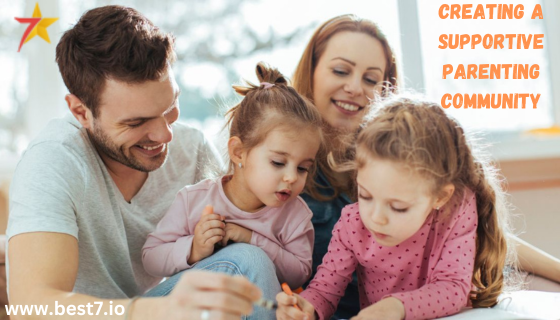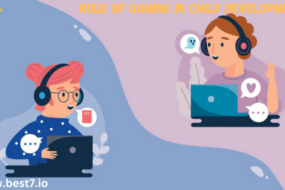
It can be overwhelming and lonely to parent in the world and society we live in today. Between the duties of motherhood and working and caring for a home, parents can feel exhausted and underappreciated. But while establishing such meaningful relationships with neighbours can be challenging, parents have the power to bridge these gaps by creating a support network of their own, forming bonds that offer empathy, guidance, and companionship.
The Importance of a Support System for Parents
According to research, a solid support system can make a world of difference in parenting and consequently improve mental health as well. Parents who feel part of a supportive community are less stressed and more satisfied with their roles as parents, according to a study published in the Journal of Family Psychology.
Building a Parenting Community: Steps for Success
By understanding how to build a parenting community, parents can learn steps to connect with others and foster an environment supporting growth.
Advantages of a Parenting Community
A good parenting community is an invaluable resource for parents struggling through the labyrinth of children’s upbringing. It gives emotional support, practical advice, and mutual belonging.
Emotional Support
Talking to other parents enables people to share their experiences and emotions, which lessens the burden of isolation. According to a poll by the American Psychological Association, parents who join such groups report better emotional health.
Practical Advice and Resources
Great resources from the parenting community allow parents to ask, answer, and exchange parenting tips for childcare, education, and discipline. Studies show that community sharing benefits lead to better parenting practices.
Opportunities for Kids to Socialize
Many supportive communities even arrange playdates, group activities, or family events. These experiences allow children to interact with one another, make friends, and practise important social coping skills.
How to Create a Parent Support Network
Find or Create a Supportive Parenting Community
This doesn’t usually happen on its own, so parents need to be intentional about creating this network.
Organizing Local Meetups
Local meetups give parents the opportunity to connect locally. Be it casual coffee meetings, playdates at the park, or themed events, these gatherings help build stronger bonds among communities.
Leveraging Social Media Groups
In the digital age, social platforms have become powerful tools for building connections. Parents can join specialized parenting forums or groups on platforms like Facebook to discuss topics of similar interest.
Establishing Parent Support Groups
Formal parent support groups can provide organized conversations and mutual understanding. These groups reduce stress and improve parenting skills, as studies by the National Institutes of Health suggest.
Collaborating with Schools and Community Centers
By partnering with local schools, community centers, and organizations, parents can engage in workshops, family events, and informational sessions that strengthen community bonds.
Fostering Connections Through Family Activities
Engaging in Family-Focused Events
Planning activities such as picnics, festivals, or volunteer opportunities increases relationships among parents and children. These shared experiences cultivate a sense of community.
Promoting Open Communication
Creating an environment where parents feel comfortable sharing their thoughts and concerns fosters trust and vulnerability. Research highlights the importance of open communication in building strong parental relationships.
Strategies to Strengthen Parental Relationships
Sharing Resources
Parents can share parenting articles, books, and workshops to work together as a support system.
Celebrating Milestones
Acknowledging personal and parenting achievements strengthens bonds within the community and creates a supportive atmosphere.
Establishing Learning Opportunities
Workshops and educational sessions with experts provide parents with valuable tools to navigate challenges effectively.
A Community-Based Approach to Child Development
Facilitating Playdates
Organized playdates encourage children to socialize, which supports their emotional and social development.
Organizing Family Events
Family events provide a platform for parents and children to connect and build lasting relationships.
Encouraging Volunteerism
Community service activities instill empathy and social responsibility in children while fostering a sense of belonging.
Strategies to Get Parents Involved
Establishing Clear Communication Channels
Parents can stay informed and involved through emails, group chats, or community bulletin boards.
Setting Shared Goals
Collaborative efforts on events or community projects foster teamwork and relationships among parents.
Valuing Feedback
Listening to parents’ feedback about community activities helps create a culture of ownership and involvement.
Building an Empathetic Environment for Parenting
Fostering positivity, inclusivity, and empathy within parenting communities can create strong connections and meaningful support networks.
Strengthening Parenting Communities
Building a supportive parenting community requires dedication and teamwork. These efforts enrich parenting experiences, promote resilience, and foster growth, creating a vibrant, connected community for parents and children alike.












